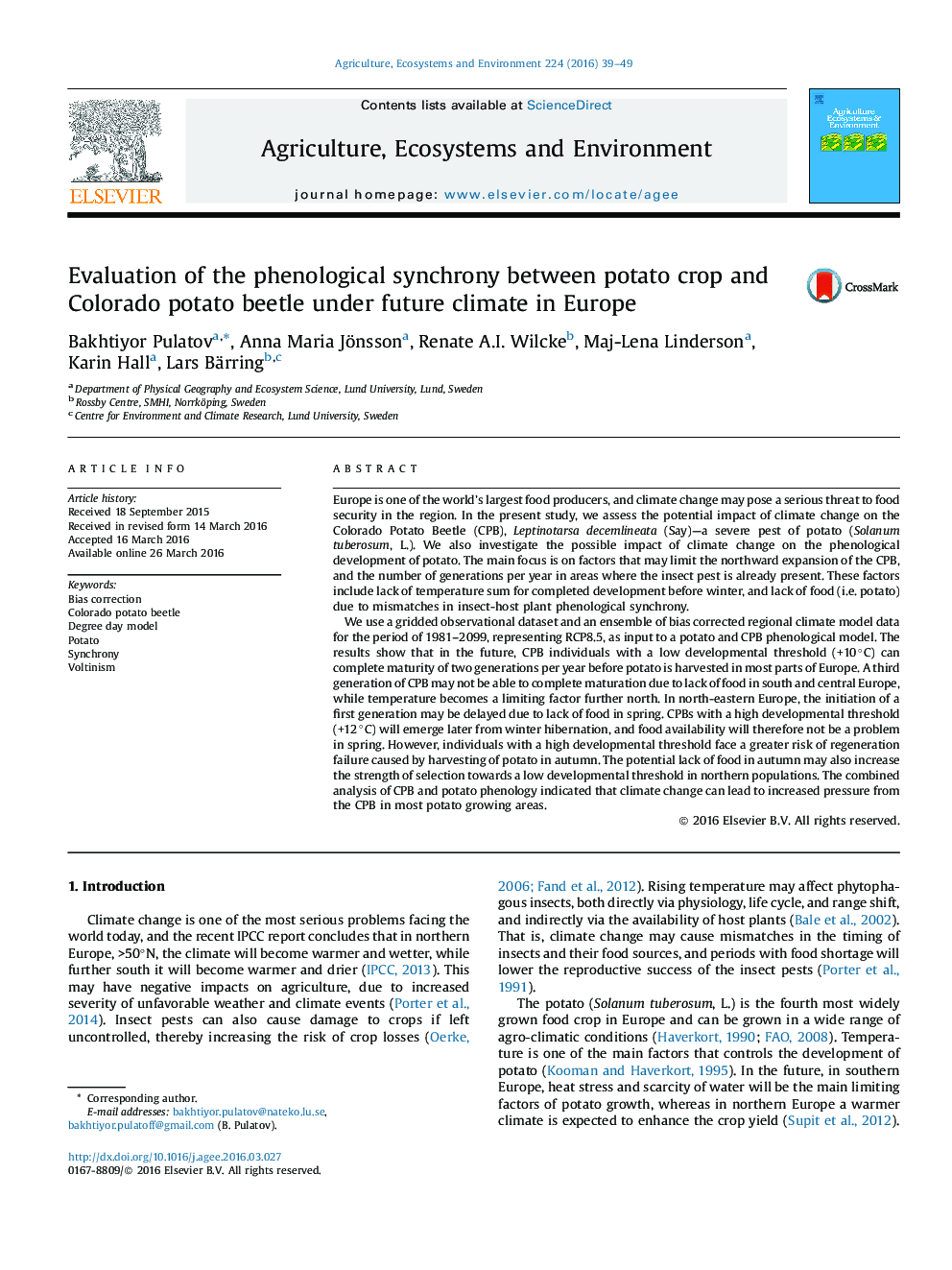| کد مقاله | کد نشریه | سال انتشار | مقاله انگلیسی | نسخه تمام متن |
|---|---|---|---|---|
| 2413536 | 1552028 | 2016 | 11 صفحه PDF | دانلود رایگان |
• Climate change can cause mismatches in the timing of insects and their host plant.
• We analysed the phenological synchrony between Colorado potato beetle and potato.
• A new method was used to select an ensemble of climate data for impact studies.
• Natural selection may favor insect individuals with a low developmental threshold.
• Lack of food in spring may delay the initiation of a first CPB generation.
Europe is one of the world’s largest food producers, and climate change may pose a serious threat to food security in the region. In the present study, we assess the potential impact of climate change on the Colorado Potato Beetle (CPB), Leptinotarsa decemlineata (Say)—a severe pest of potato (Solanum tuberosum, L.). We also investigate the possible impact of climate change on the phenological development of potato. The main focus is on factors that may limit the northward expansion of the CPB, and the number of generations per year in areas where the insect pest is already present. These factors include lack of temperature sum for completed development before winter, and lack of food (i.e. potato) due to mismatches in insect-host plant phenological synchrony.We use a gridded observational dataset and an ensemble of bias corrected regional climate model data for the period of 1981–2099, representing RCP8.5, as input to a potato and CPB phenological model. The results show that in the future, CPB individuals with a low developmental threshold (+10 °C) can complete maturity of two generations per year before potato is harvested in most parts of Europe. A third generation of CPB may not be able to complete maturation due to lack of food in south and central Europe, while temperature becomes a limiting factor further north. In north-eastern Europe, the initiation of a first generation may be delayed due to lack of food in spring. CPBs with a high developmental threshold (+12 °C) will emerge later from winter hibernation, and food availability will therefore not be a problem in spring. However, individuals with a high developmental threshold face a greater risk of regeneration failure caused by harvesting of potato in autumn. The potential lack of food in autumn may also increase the strength of selection towards a low developmental threshold in northern populations. The combined analysis of CPB and potato phenology indicated that climate change can lead to increased pressure from the CPB in most potato growing areas.
Journal: Agriculture, Ecosystems & Environment - Volume 224, 15 May 2016, Pages 39–49
